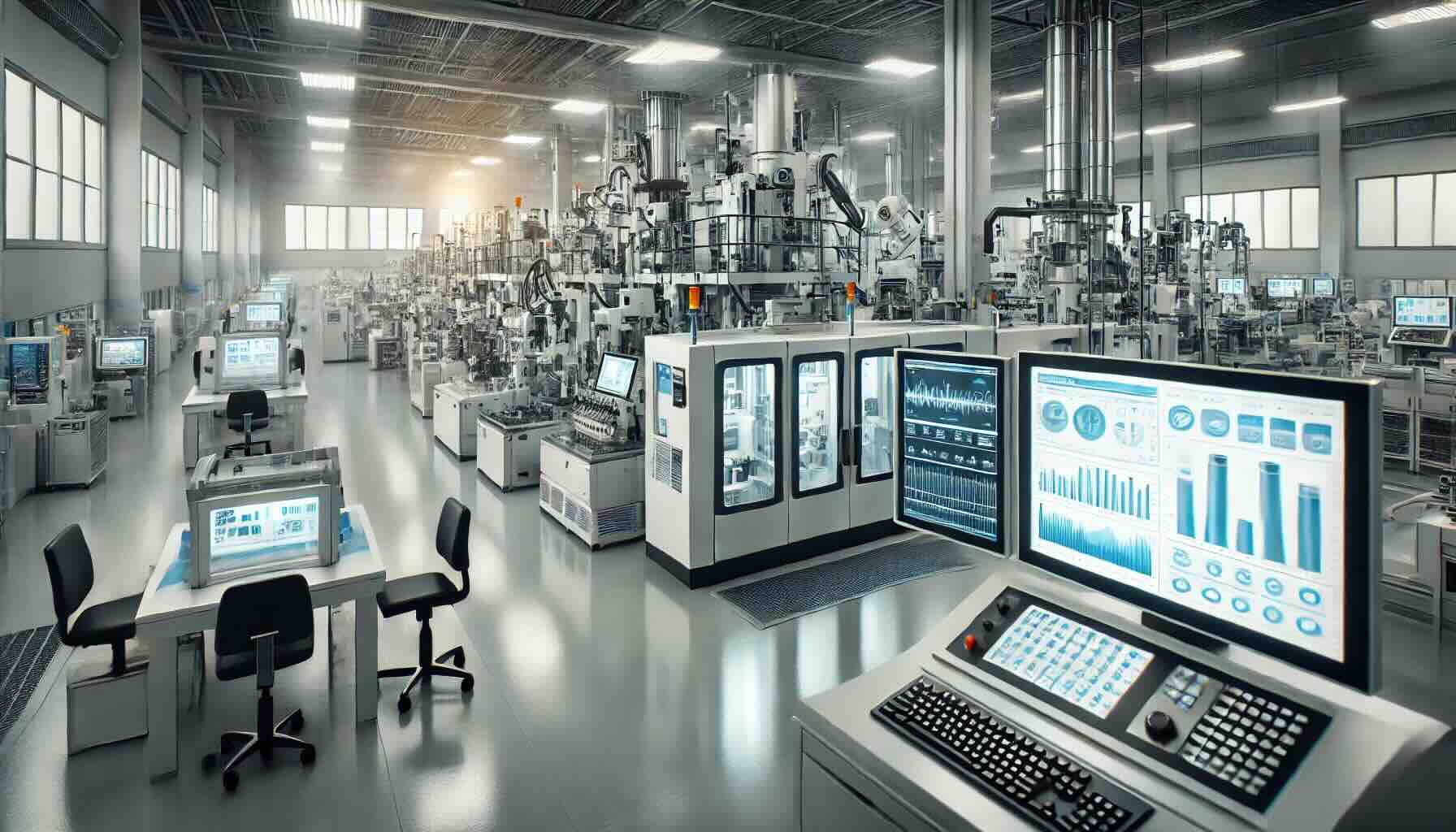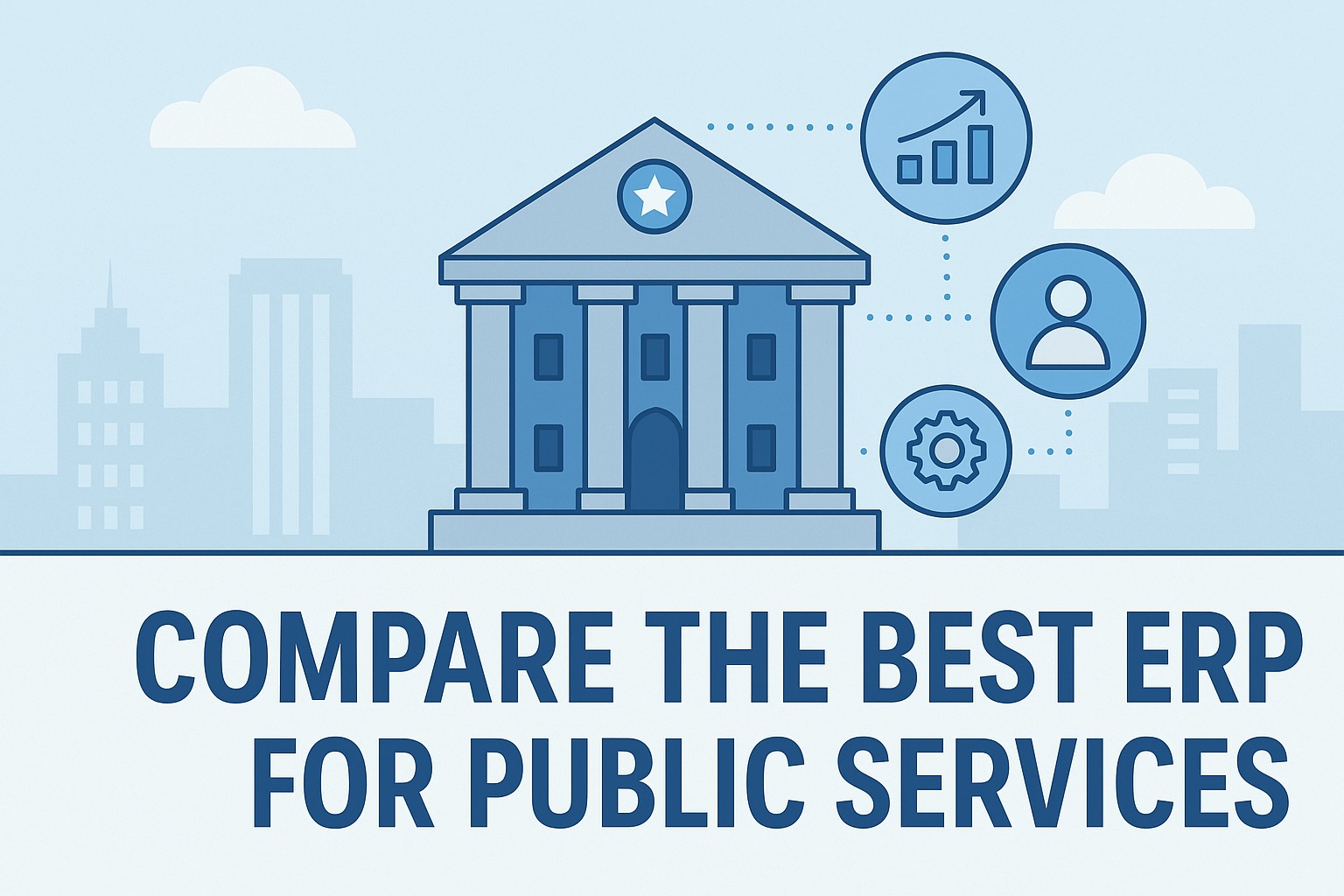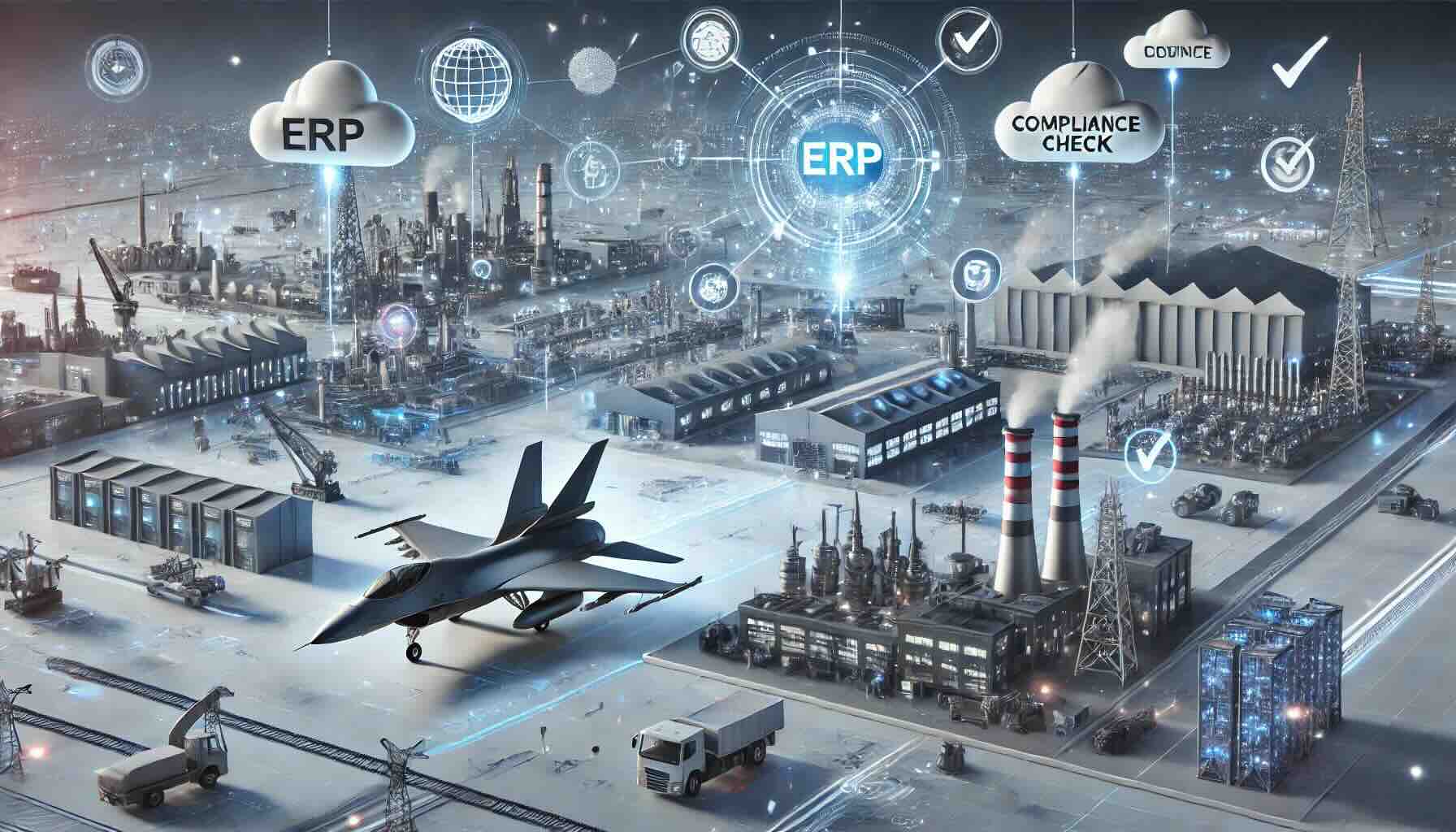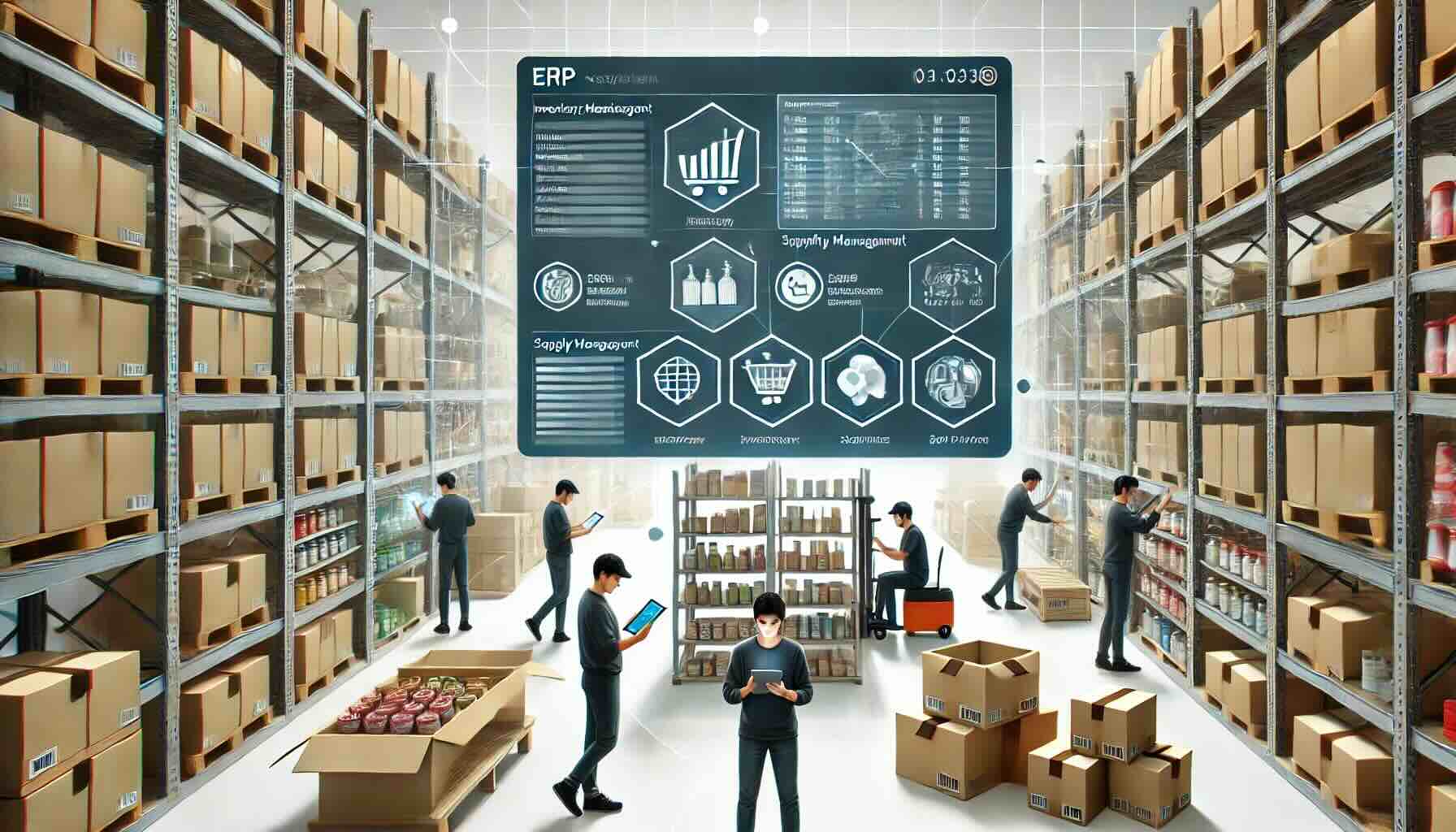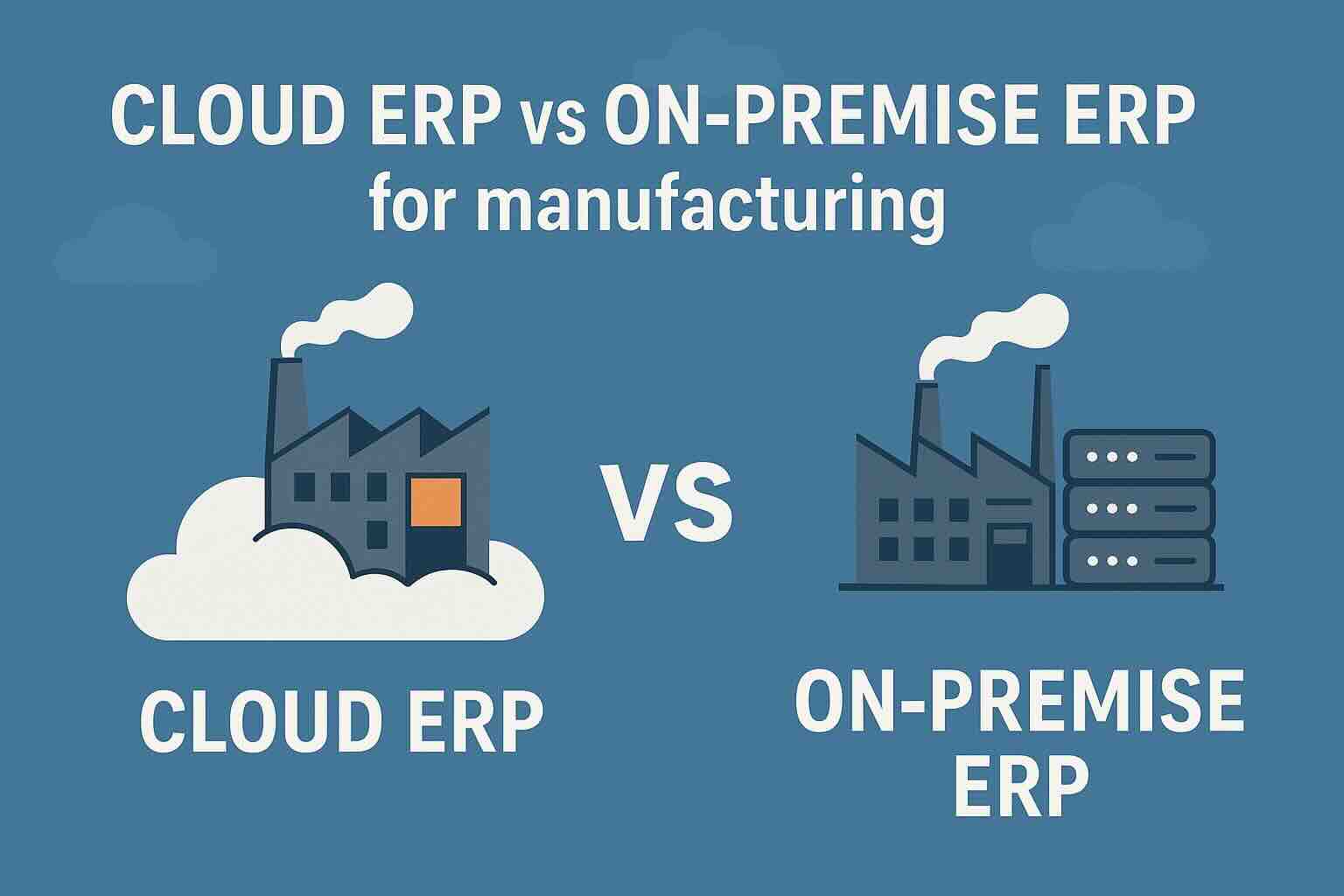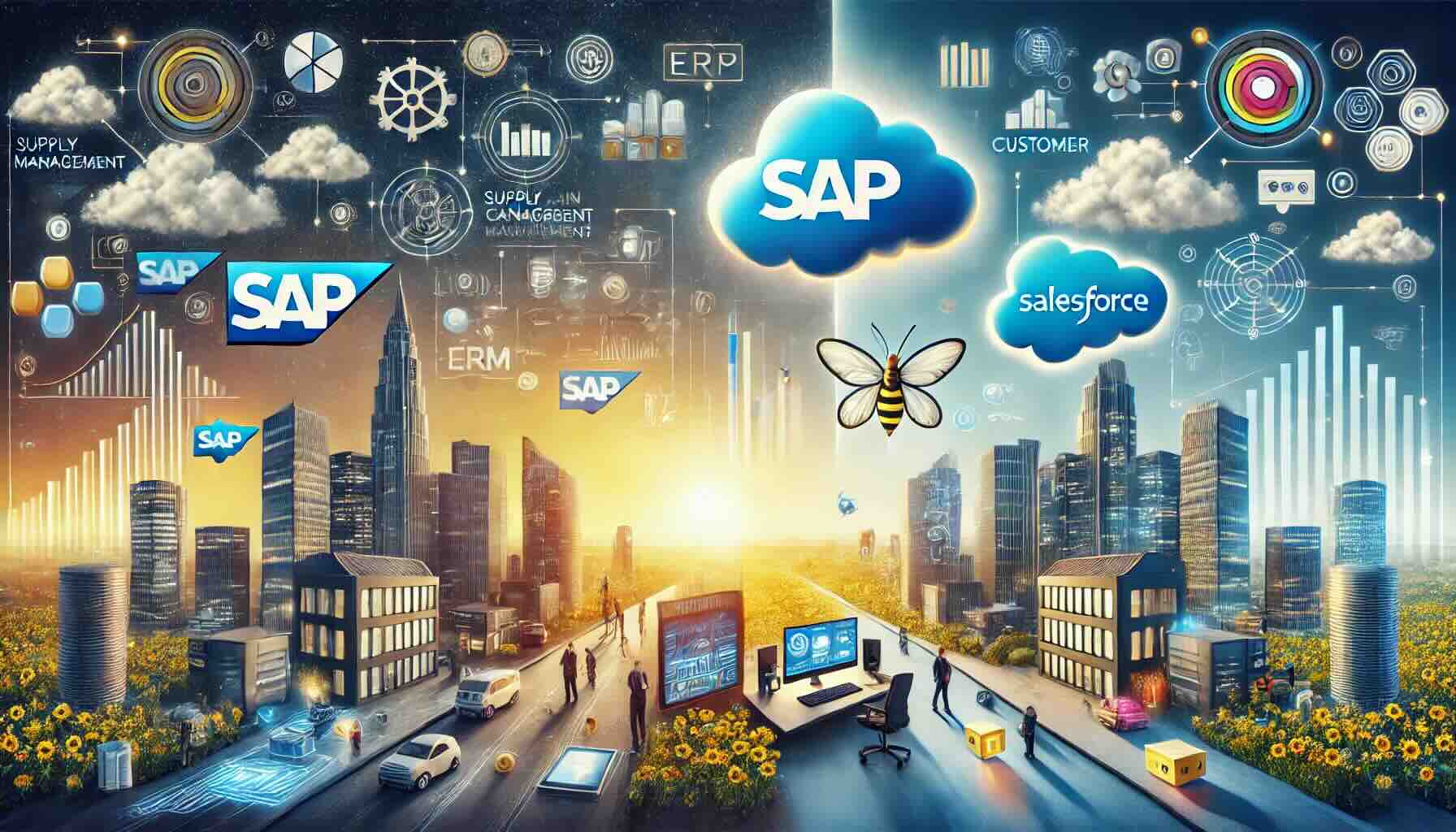Compare the Best ERP Systems for Small Manufacturing Companies
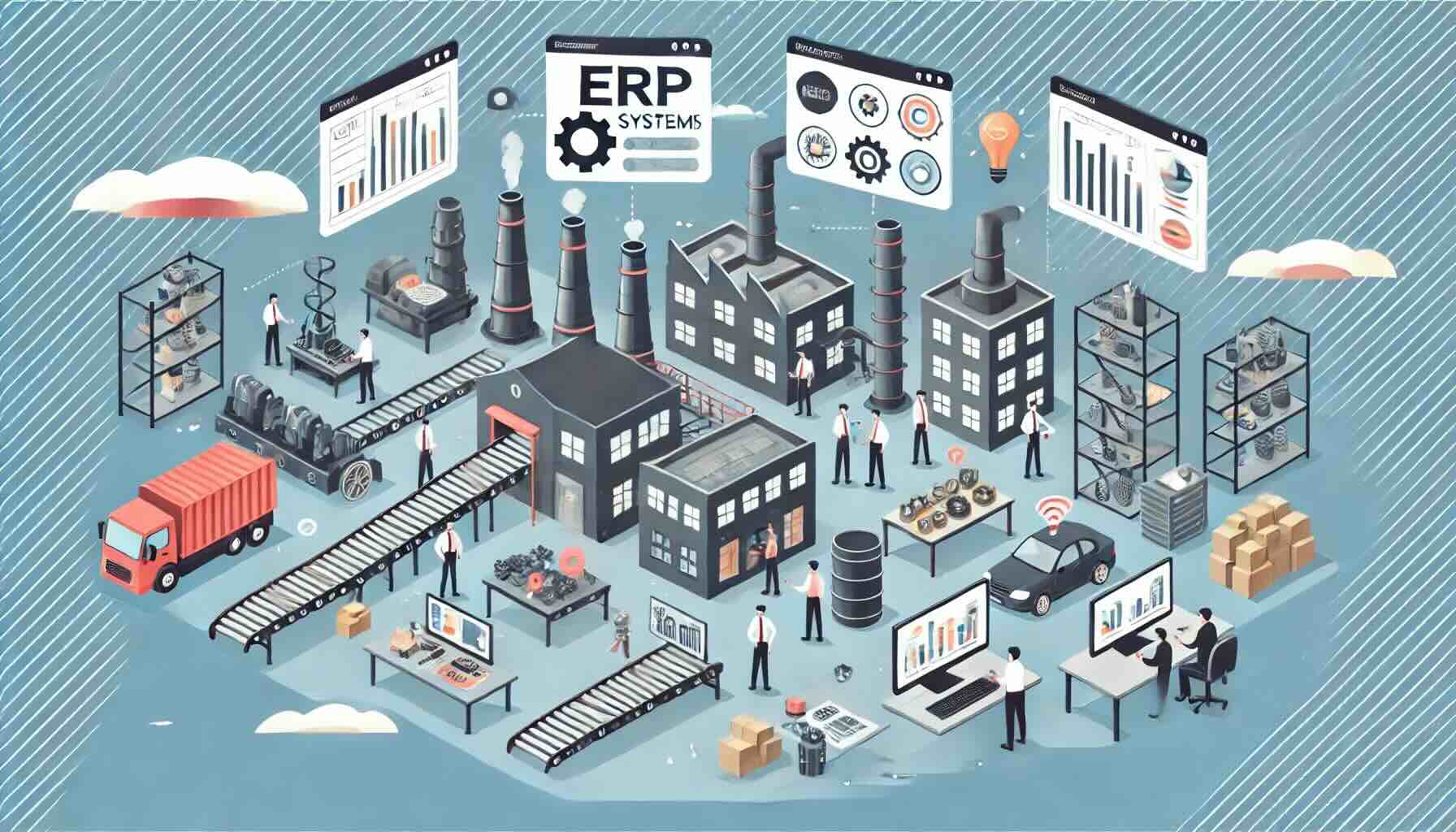
In the rapidly evolving manufacturing sector, small businesses face unique challenges that require robust and efficient solutions. Implementing an Enterprise Resource Planning (ERP) system can be a game-changer, enabling small manufacturing companies to streamline operations, enhance productivity, and improve profitability. But with so many options on the market, how do you choose the best ERP system for small manufacturing companies? This blog aims to compare the top ERP systems specifically designed to meet the needs of small manufacturers.
What is an ERP System?
An ERP system integrates various business processes into a unified system. This integration enables real-time data sharing across different departments, leading to improved efficiency and decision-making. For small manufacturing companies, an ERP system can manage everything from inventory and production to finance and human resources.
Why Small Manufacturing Companies Need an ERP System
Small manufacturing companies often operate with limited resources and personnel. An ERP system helps in automating and optimizing business processes, thereby reducing manual work and minimizing errors. Key benefits include:
- Enhanced productivity: Streamlined operations and automated workflows save time and reduce costs.
- Improved decision-making: Real-time data and analytics provide insights for strategic planning.
- Inventory management: Efficient tracking and management of inventory levels prevent overstocking and stockouts.
- Scalability: ERP systems grow with your business, accommodating increased production and workforce.
Comparing the Best ERP Systems for Small Manufacturing Companies
Let’s dive into a detailed comparison of the top ERP systems suited for small manufacturing companies. We’ll examine their features, pricing, ease of use, scalability, and cons.
1. SAP Business One
Overview:
SAP Business One is a comprehensive ERP solution designed specifically for small and medium-sized enterprises. It offers a wide range of modules covering finance, sales, inventory, and production, with real-time data analytics and customizable dashboards.
Features:
- Comprehensive modules covering finance, sales, inventory, and production
- Real-time data analytics and reporting
- Customizable dashboards and user interfaces
- Integration with other SAP solutions and third-party applications
Pricing:
- Licensing starts at $3,213 per user (one-time fee)
- Additional costs for implementation and customization
Ease of Use:
- User-friendly interface with intuitive navigation
- Requires some training for full utilization
Scalability:
- Suitable for small to medium-sized businesses
- Easily scalable with growing business needs
Cons:
- High initial cost
- Complex implementation process
2. Oracle NetSuite
Overview:
Oracle NetSuite is a cloud-based ERP system known for its global business management capabilities. It offers robust financial management, comprehensive inventory and supply chain management, and built-in CRM and e-commerce modules.
Features:
- Cloud-based ERP with global business management capabilities
- Robust financial management and reporting tools
- Comprehensive inventory and supply chain management
- Built-in CRM and e-commerce modules
Pricing:
- Starts at $999 per month, plus $99 per user
- Pricing varies based on modules and user count
Ease of Use:
- Modern, user-friendly interface
- Extensive training resources available
Scalability:
- Highly scalable, ideal for growing businesses
- Supports multi-subsidiary and multi-country operations
Cons:
- Can be expensive for small businesses
- Customization can be complex and time-consuming
3. Microsoft Dynamics 365 Business Central
Overview:
Microsoft Dynamics 365 Business Central is an all-in-one business management solution that integrates seamlessly with other Microsoft products. It provides strong financial and supply chain management capabilities and is customizable to fit specific industry needs.
Features:
- All-in-one business management solution
- Strong financial and supply chain management capabilities
- Integration with Microsoft Office 365 and other Microsoft products
- Customizable to fit specific industry needs
Pricing:
- Starts at $70 per user per month
- Additional costs for advanced modules and customizations
Ease of Use:
- Familiar Microsoft interface, easy to adopt
- Extensive support and training resources
Scalability:
- Scalable to accommodate business growth
- Suitable for small to medium-sized enterprises
Cons:
- Limited manufacturing-specific features
- Requires customization for certain industries
4. Odoo
Overview:
Odoo is an open-source ERP system offering a wide range of modules. It provides flexibility to choose only the needed modules, with strong manufacturing and inventory management features available in both community and enterprise versions.
Features:
- Open-source ERP with a wide range of modules
- Flexibility to choose only the needed modules
- Strong manufacturing and inventory management features
- Community and enterprise versions available
Pricing:
- Community version is free; enterprise version starts at $24 per user per month
- Additional costs for hosting and support
Ease of Use:
- User-friendly with a modern interface
- Requires some technical knowledge for customization
Scalability:
- Highly scalable with additional modules
- Suitable for small to large enterprises
Cons:
- Community version has limited support
- Customization can require technical expertise
5. Infor CloudSuite Industrial (SyteLine)
Overview:
Infor CloudSuite Industrial (SyteLine) is a comprehensive ERP solution tailored for manufacturers. It offers strong production and supply chain management capabilities with advanced planning and scheduling tools, all within a cloud-based, multi-tenant architecture.
Features:
- Comprehensive ERP solution tailored for manufacturers
- Strong production and supply chain management capabilities
- Advanced planning and scheduling tools
- Cloud-based with multi-tenant architecture
Pricing:
- Custom pricing based on business needs
- Typically includes implementation and training costs
Ease of Use:
- User-friendly with customizable dashboards
- Requires some training for advanced features
Scalability:
- Designed for scalability, supporting small to large manufacturers
- Flexible deployment options
Cons:
- Custom pricing can be expensive
- Requires training for full utilization
Conclusion
Choosing the best ERP system for small manufacturing companies depends on specific business needs, budget, and growth plans. Each of the systems discussed offers unique features and benefits. SAP Business One, Oracle NetSuite, Microsoft Dynamics 365 Business Central, Odoo, and Infor CloudSuite Industrial (SyteLine) are all excellent choices, providing robust solutions to enhance productivity, streamline operations, and support business growth.
To make the best decision, consider conducting a thorough needs assessment and consulting with ERP experts. Implementing the right ERP system will not only optimize your manufacturing processes but also set the stage for long-term success.
To compare these ERP solutions and many more, you can use our new AI-powered Compare ERP tool. It’s free to use and you get a guaranteed discount on your first year’s licence fees with a referral from Compare ERP.
